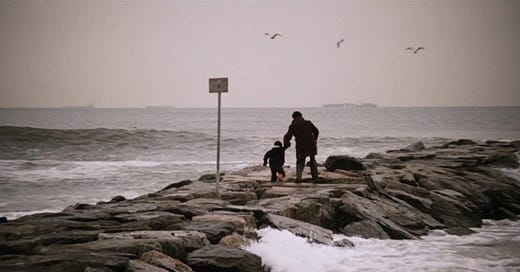Satyajit Ray’s Nayak sees the titular protagonist Arindam Mukherjee reminisce his spectacular rise, to a young editor of a small magazine, on a train journey en-route Delhi. One particular scene measures the palpable tension in the mind of our hero, the night before his debut film hit the theatres. He confides in his bosom friend (later his secretary) how a senior actor’s performance in that film majorly hinged on overacting. Young Arindam, though from a theatre background himself, had honed his skills seeing the likes of Brando, Bogart, Paul Muni et al. By the time he joined the industry, it was planted in himself that even the slightest of overacting can multiply exponentially and mar an otherwise good scene. This was Ray’s dig at some contemporary theatre artists, who albeit legends in their field, failed to differentiate between stage and film as separate media, and at the end could not bring themselves to the fact that a concerned actor is nothing but a puppet in the hands of a director.
If one person in the history of Hindi cinema could encapsulate what Ray was trying to hint at, it was a Sahabzade, belonging to the royal family of Jaipur, but a rank outsider in Bollywood. At the time when his surnamesakes were already superstars, he was barely making his way to what were the remnants of parallel cinema. Even in out-and-out commercial films, like ‘Aan: Men at Work’ with an otherwise ensemble cast, his onscreen mannerisms would be rather different from his colleagues. In the history of Bollywood, save a few, most of our stars had one single motto in life, garnering a few claps and settling for a few ‘seetis’ from cine-goers. Their throw of dialogues, to say the least, is a testament to this philosophy. Oh, the ephemerality of it all.
When tributes flow in, they usually touch all the milestones, the high points in someone’s curves. No one would remember Arindam Mukherjee’s nervousness that night, somewhat soothed thanks to a copious amount of ethanol his friend lent him. The future superstar barely managed to sit through half of his debut film. For Irrfan, his eyes were his memoirs. Those pair bore testimony to all his hardships, from being a newcomer to an established struggler. The result was that matchless intensity.
When a person is asked to pick the favourite films of an actor purely on acting merits, she usually picks the most ‘prominent’ ones. For SRK, high chance it would be ‘Chak De’, as it would be ‘Taare Zameen Par’ for Aamir Khan. Behavioural economists and statisticians would tell you how such a choice is guided by an inherent bias. This results when the other films are magnificently so-so, hence our primitive tendency to rely on regression to the mean might justify the selection of the film in consideration. In Irrfan’s case, the choice is rather difficult. There is hardly a film where his acting has been ‘mediocre’. Even for a moment if we consider Maqbool as his finest hour, the contenders are endless, right till The Lunchbox. Then there are films in which the spotlight isn’t supposed to be on him, a case in point being Piku. It got Sr. Bachchan his 4th National Award for Best Actor, but truth be told, it was Irrfan’s summer all along. In films like ‘Thank You’ or ‘Jazbaa’, ones where you would not expect filmmaking or the general story to give actors the necessary push, Irrfan continued to be effortless. It must be difficult for his co-actors to tolerate him through the entire length, knowing fully well by the time the film ends, someone has already stolen their thunder. All these years, I have always felt Irrfan is like a Zen monk, forever calm even in his anger, with a volcano in himself.
My father passed away on 28th April 2012 at the age of 45. Relatives ruminated, “Is it even an age?” Today is 29th April 2020. Irrfan moves on to the other side at the age of 54. Billions mutter, “Is it even an age?” The 4th month of the year starts with fooling everyone. While it reluctantly crawls towards May, it leaves behind an apocalypse.
April is the cruellest month indeed.



